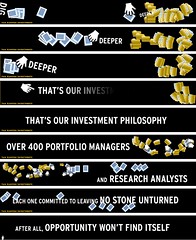f you're interested in a financial career, you might be curious about how your interests can lead to reconciliation between your job and your belief system. Social finance might open the door to several solutions for your dilemma. While social financing might seem new, it's been around since the first individual took a stand against profit at any cost. A Quaker would no more finance slavery before the Civil War than a conscientious objector would finance war machines today.
Before you have an epiphany about your career goals, you might want to learn more about the various facets within social financing, the career opportunities that are open to you, and the education you may need to pursue your dreams.
Social Finance Defined
Social finance means that financial instruments are used to promote social goals. Financial instruments used to accomplish these goals include credit, savings, investments, and loans, among other devices. These tools help the poor to cope better with risk, take advantage of income-generating opportunities, to organize and to have a voice. These tools also incorporate personal values and societal concerns with investment decisions, where individuals or groups hope to support sustainable business efforts.
Social finance has, historically, belonged to governments and charitable or religious organizations; however, with a focus on global warming and with news about difficulties encountered by individuals in underdeveloped countries, the private sector has become involved in this specialized field. While some businesses and individuals seek to use funds for philanthropy, others want to contribute with an eye to profit.
So, while the social goals may seem similar among most social financiers, intents behind those goals may vary widely. For instance, a public corporation and a private individual both may want to support lower income populations. But, the corporation might want to eliminate poverty to create a new consumer pool for their products while the individual might work toward the same goal to support a belief in social equality.
Some Social Finance Careers
If you're interested in financial matters, you already know that markets have integrated to a degree, and that this integration - or globalization - means that various countries have become more interdependent. Financial capital is flowing into pre-emerging and emerging markets, where these funds help individuals and communities meet social needs.
Social finance careers have expanded to the point where you can attend a school in London that focuses solely on social entrepreneurship. Whether your interests lie in a nonprofit or for profit participation in this specialized industry, you might wonder where your opportunities lie. Some social finance positions might include:
Community Investor: The community investor works with other individuals to gather, oversee, and direct capital to community investment opportunities in local or regional areas or abroad. The communities in question usually have been under-served or overlooked by ordinary financial services. You can learn about community investing and some organizations involved with this outreach at the Social Investment Forum's Community Investing Center.
Usually, community investors report to a board of directors and, ultimately, to the shareholders of a company that organizes investing efforts. But, you can work toward becoming a venture capitalist who focuses on community potentials rather than on new businesses. Or, you can find a place within various organizations or on their boards.
Micro-Financier: Community investors can also become micro-financiers, a role that is very similar to the venture capitalist but that doesn't demand return on investment in all cases. This individual seeks to provide impoverished individuals or communities with the means to invest or borrow money for business or community development. Usually these financial transactions eliminate the need for collateral, and they carry smaller than average investment requirements.
The micro-financier may work solo or for companies that range from financial businesses to non-governmental organizations (NOGs). As a solo investor, you can also become involved with opportunities provided by micro-finance networks that focus on helping individuals as diverse as your own family members to unknown individuals in developing countries.
Nonprofit Sector: The nonprofit sector is, perhaps, the most traditional arm of the social finance network. When you work for a nonprofit organization or private foundation, you'll usually report to a board of directors or trustees, depending upon that organization's legal structure. The nonprofit sector is diverse, as it ranges from interests in the arts to animal rights.
The nonprofit sector is also the most diverse when it comes to opportunities. While some individuals are content to volunteer for nonprofit efforts, you can also seek a career as an executive or work as a freelance grant writer or project coordinator. The freelance positions may allow you to satisfy your desires to provide help for various organizations and still pay the rent.
Social Entrepreneur: Unlike venture capitalists, social entrepreneurs provide innovative solutions to difficult social problems usually without seeking personal profit. This entrepreneur is similar to the business entrepreneur in that he seeks to build something out of nothing with creativity and ambition. Social entrepreneurs, however, see people or communities in need rather than new businesses as their untapped markets.
Social enterprises include businesses that measure success by profits and by community benefits. With that said, a career as a social entrepreneur could combine the characteristics of altruistic nonprofits with for-profit micro-financing to create a hybrid social financing opportunity. The individuals involved at both ends often define whether the opportunity is for-profit or nonprofit, but in all cases the project usually helps to improve a community's social situation.
What to Expect
If you're already drawn to a financial career in accounting, investing, research, trading, banking or other areas, then you know the specific thrills you gain from your interest(s). If you want to incorporate a social angle to your career objective, you will also need to expand your skills and experience through education and work. You can expect to gain the following:
Interdisciplinary Skills: You will gain skills across disciplines, as you may need experience in other fields other than financial management. Sociology, anthropology, political science, and other studies that are listed under social sciences or humanities will help you reach your goals. You can also focus on technological, environmental, or leadership facets to social financial careers. Your interdisciplinary needs will depend upon whether you want to focus more on social or financial aspects within this field.
Leadership Opportunities: Social financing is a means to create innovative ways to improve social environments, and this field needs creative leaders who can take the initiative in many situations. Social financing does focus on money, but that's only half the equation. The "social" aspect requires individuals who can identify unusual resources beyond money that can be used to improve an individual or community situation.
So you can write grant proposals for projects, or you can search for alternatives to funds to resolve a problem. Or, you can donate enough money to sit on an organization's board, or you can donate your time and energy to achieve the same objective. Business leadership skills like those found in organizational, nonprofit, or project management can open doors to many opportunities.
Flexibility: Careers in social financing currently may be definitive or broad and fairly undefined. You many find a way to travel the globe, or you may seek a situation where you're alone and surrounded by books and archival materials. Since this field is growing, however, you may find that your job will demand a little of both worlds and more. This flexibility is part of what many social finance employers seek, as their volunteers and employees often wear more than one hat.
An ability to flex with a situation is also defined as "creative" and "innovative," especially when unexpected situations are met with little complaint. A flexible situation can also be meaningful, as a job within the social finance sector is well suited to people who want to use their skills, talents, education, and money to bring about social change.
Global Knowledge: Even if you end up in a back office surrounded by social financing accounting books, you will learn much about how people live in other communities around the world. This global knowledge contains many advantages for a person who seeks to move up the social finance career ladder, or for the individual who eventually wants to become a social venture capitalist or entrepreneur. Without knowledge about politics, cultural influences, and other objectives that influence community development, the social financier will waste time, skills, and money.
In addition, globalization requires specialized knowledge on how countries and communities become interdependent. Whether or not you approve of globalization, the trend toward interdependence is in motion. Your can use your participation in a social financing career to support your beliefs.
Where to Begin
If a career in social financing intrigues you, you might want to conduct more research and you'll definitely want to try this field on for size. Your focus can include local volunteerism, online reading, further education, and conversations with individuals who work in the field.
Begin with Volunteerism: If you want to learn more about how "social" connects to "finance," you can volunteer to work with a nonprofit organization. Not only will you gain experience on the ground, you'll meet individuals who can help point you in a career direction. You can also expand your horizons to work in other regions as well. You can find nonprofit volunteer and career opportunities online through sites like the Nonprofit Career Network or Idealist.org.
Find Other Social Financiers: When you link up with other like-minded individuals, you can learn more about what to expect in your career aspirations. You can find these individuals locally or online through sites like the Social Edge or Changemakers.net. If you plan to head in the venture capitalist direction, you can find like-minded individuals at the National Venture Capital Association. While the individuals within this organization might not participate in social financing, they can help you gain knowledge about this investment field.
Expand Your Education: Even if you've accomplished a doctoral degree, you can always learn more. Think about expanding your education to achieve the cross-disciplinary expectations required by this industry. You might consider that school in London, or you can find similar courses in social entrepreneurship at Duke University or at Stanford. You can also take it upon yourself to learn new languages, financial skills, social sciences, and about environmental issues.
If you feel you can't take the time or money to expand your education in a campus or self-learning environment, then plan to join an organization at the ground floor or as a volunteer. Sometimes experience can count for credits in a later educational endeavor, and it always counts toward a career move when others see your participation in action or on your resume.
All social finance organizations need financial personnel. From the Red Cross to Greenpeace to other social organizations, you can find a niche that best fits your current financial skills and social goals. If you prefer to work in investments, you can learn from socially responsible funds and other investment opportunities. Sites like Social Funds or the Social Investment Forum can offer opportunities to learn about investments that range from green initiatives to funds that support minority groups. You'll also learn more about the organizations that offer these funds and investment opportunities.
No matter your direction once you get your feet wet in this field, you may learn that financial opportunities don't always lead to gluttony, lust, and depravity. Nor will they all lead to living without the needs vital to survival. Whether you lean toward nonprofit or for-profit careers in social financing, you can find an area that needs your support and interest. You may find that your new career will help you "do good" and do well.












